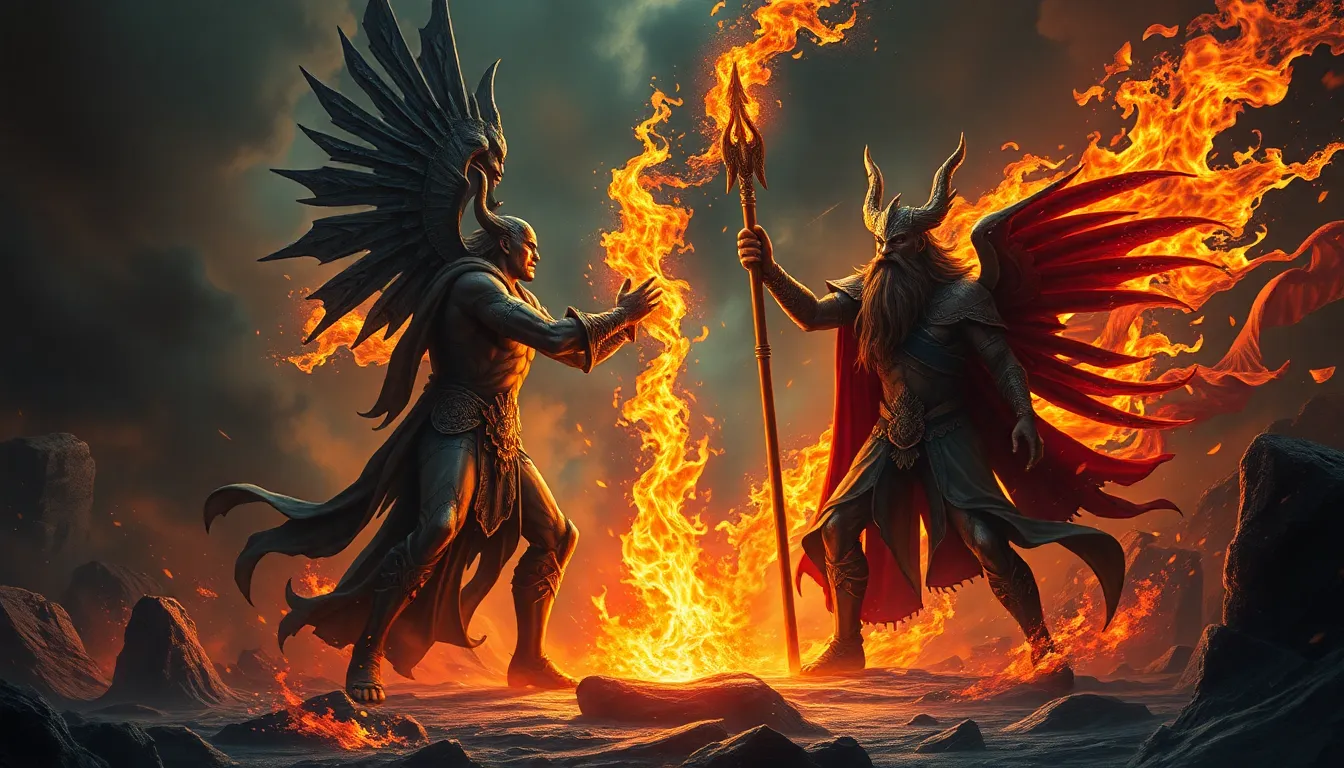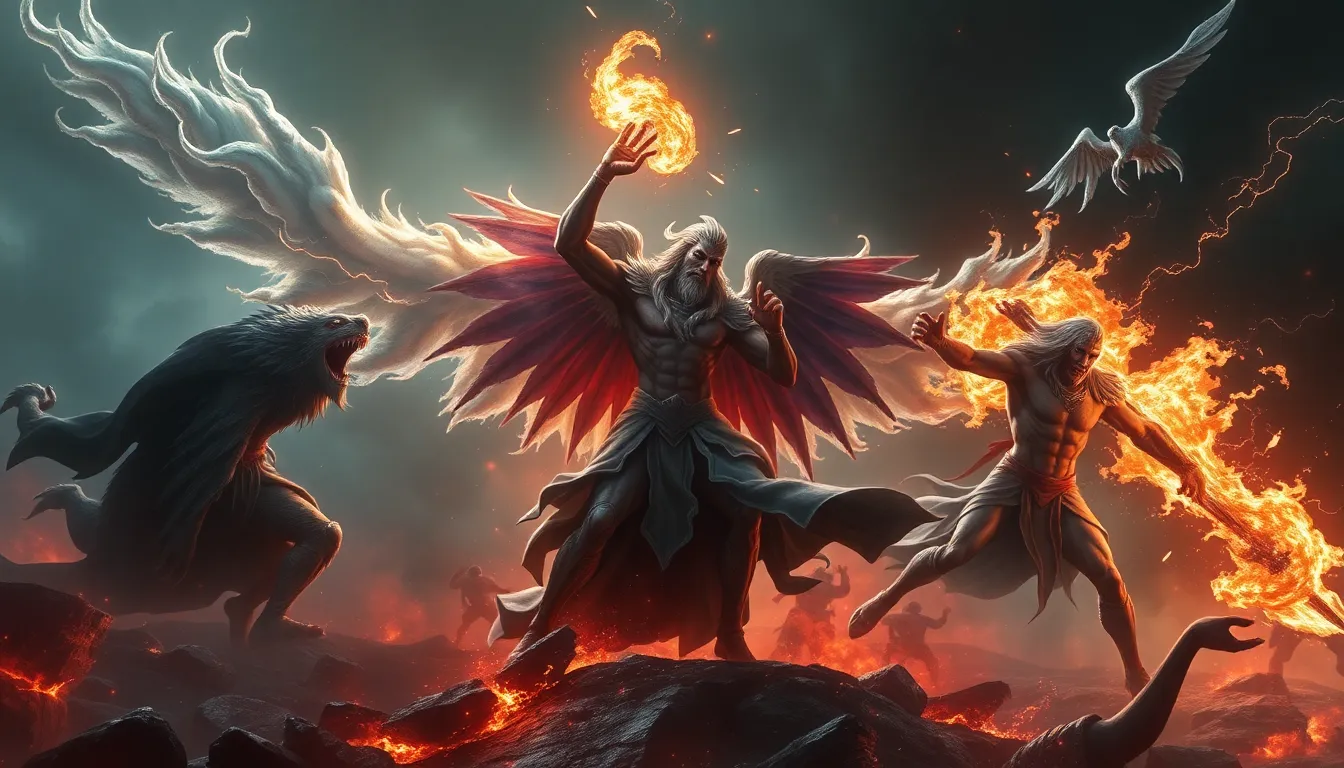The Impact of Cultural Hero Myths on Society
Introduction
Cultural hero myths are narratives that celebrate extraordinary individuals who embody the values and ideals of a society. These myths often feature figures who perform great deeds, overcome significant challenges, and serve as symbols of virtue and strength. Across various cultures and historical contexts, hero myths have played a vital role in shaping communal identities, values, and behaviors.
This article explores the profound impact of cultural hero myths on societal values and behaviors, examining their historical context, psychological influences, and representation in modern media.
Historical Context of Hero Myths
The origins of cultural hero myths can be traced back to ancient civilizations where they served to explain natural phenomena, instill moral values, and unify communities. For example:
- Greek Mythology: Heroes like Hercules and Odysseus symbolized courage and intelligence, representing the ideals of ancient Greek society.
- African Folklore: Figures such as Anansi the Spider illustrate cleverness and resilience, often teaching moral lessons through their adventures.
- Indigenous Cultures: Many Indigenous cultures have hero myths that emphasize harmony with nature and communal values, such as the stories of Coyote or Raven.
Over time, these myths have evolved, reflecting changes in societal values and the complexities of modern life.
Key Characteristics of Hero Myths
Cultural hero myths often share common traits that define the heroes within them:
- Bravery: Heroes often face insurmountable odds with courage.
- Sacrifice: Many heroes willingly put themselves at risk for the greater good.
- Moral Integrity: Heroes typically embody virtues like honesty and justice.
Additionally, supernatural elements frequently play a role in these myths, whether through divine intervention or magical abilities. The narrative structure often follows the hero’s journey, a framework that includes stages such as the call to adventure, trials, and eventual triumph.
The Psychological Impact of Hero Myths
Hero myths can significantly shape individual and collective identity. They serve as aspirational figures that motivate people towards personal and communal improvement. For instance:
- Identity Formation: Individuals often look to heroes to define their own values and aspirations.
- Community Motivation: Heroic narratives can foster a sense of belonging and shared purpose among community members.
Psychological theories, such as social identity theory, suggest that hero worship can enhance self-esteem and group cohesion. However, this can also lead to the phenomenon of blind allegiance, where individuals may overlook the flaws of their heroes.
Cultural Hero Myths and Social Norms
Hero myths significantly influence societal values and ethics. They often reflect and reinforce the norms of their respective cultures. For example:
- Case Study – Justice: The myth of Robin Hood has influenced legal and social customs regarding wealth distribution and fairness.
- Social Hierarchies: Some hero myths perpetuate existing social structures, elevating certain groups while marginalizing others.
In this way, cultural hero myths can both inspire positive change and reinforce problematic norms.
Hero Myths in Modern Media
The transformation of hero myths in contemporary literature and film illustrates how these narratives adapt to modern sensibilities. Characters like Spider-Man and Wonder Woman reflect contemporary issues such as diversity and social justice while retaining classic heroic traits.
Popular modern heroes often have complex backgrounds, emphasizing themes of redemption and personal struggle. Social media also plays a role in reshaping hero narratives, allowing individuals to share their personal hero stories and redefine what it means to be a hero in today’s society.
Cultural Hero Myths and National Identity
Hero myths are frequently instrumental in nation-building and fostering patriotism. National heroes, such as George Washington or Mahatma Gandhi, serve as symbols of collective memory and values.
These myths can create a shared identity among citizens, but they also raise questions about historical accuracy and the potential for myth-making to overshadow reality. The narratives we construct around national heroes often reflect our aspirations and fears as a society.
Critiques and Controversies Surrounding Hero Myths
Despite their positive aspects, hero myths can promote toxic masculinity, exclusion, and unrealistic expectations. Critics argue that:
- Hero myths can glorify violence and aggression, particularly in male heroes.
- Blind allegiance to heroes can lead to harmful behaviors, as individuals may overlook moral failings.
- The traditional portrayal of heroes often excludes diverse voices and experiences.
These critiques highlight the need to reassess the relevance and implications of traditional hero myths in contemporary discourse.
The Future of Cultural Hero Myths
As society evolves, so too will hero narratives. Emerging trends suggest a shift towards inclusivity and representation in hero myths, reflecting the diverse fabric of modern society.
Additionally, changing societal values may lead us to redefine heroism, emphasizing collaboration, empathy, and community over individualism and competition. This evolution may shape the heroes of tomorrow, creating narratives that resonate with a broader audience.
Conclusion
The impact of cultural hero myths on society is multifaceted, influencing values, behaviors, and identities. While they can inspire and motivate, they also present challenges and critiques that require careful consideration. As we move forward, embracing diversity and inclusivity in our narratives will be essential in shaping the heroes of the future.



